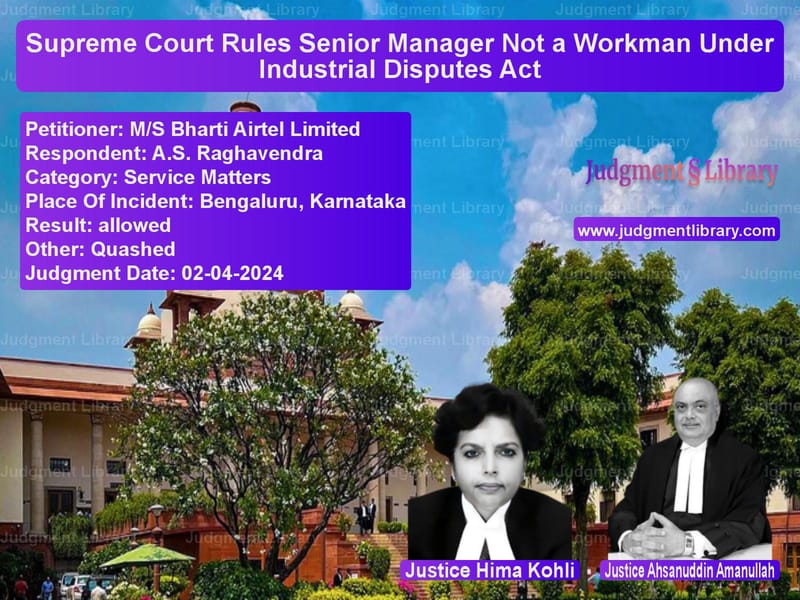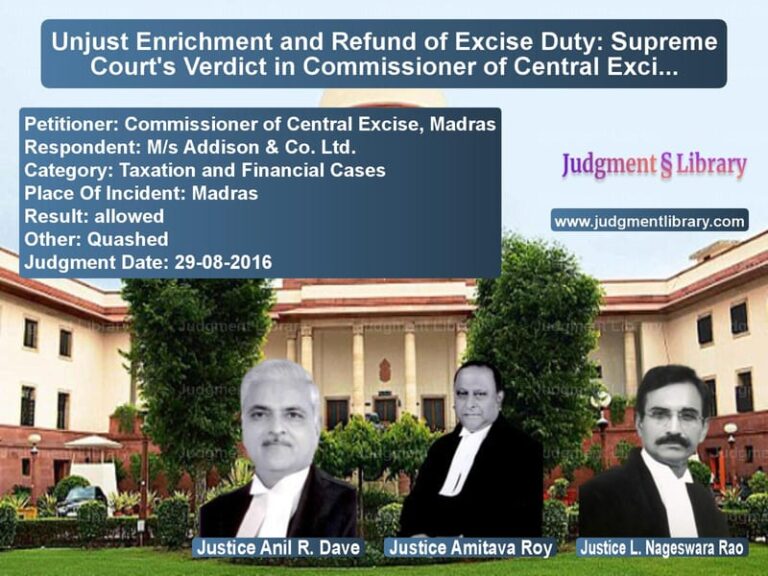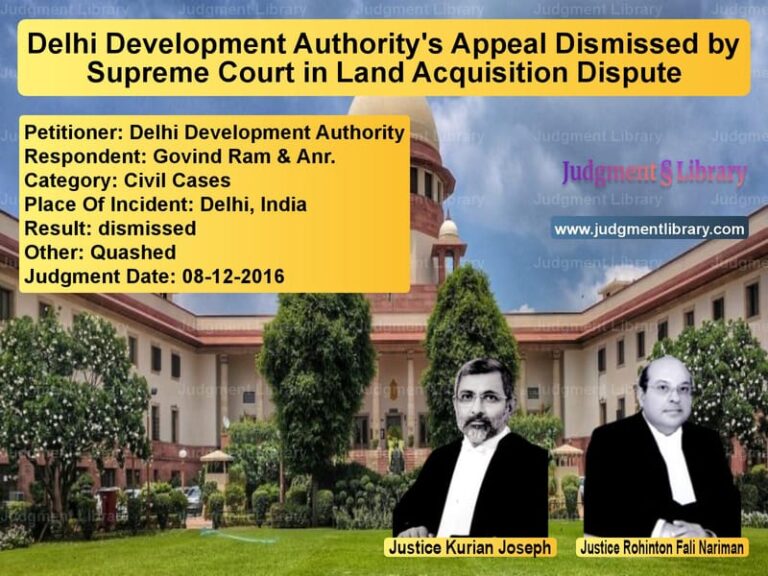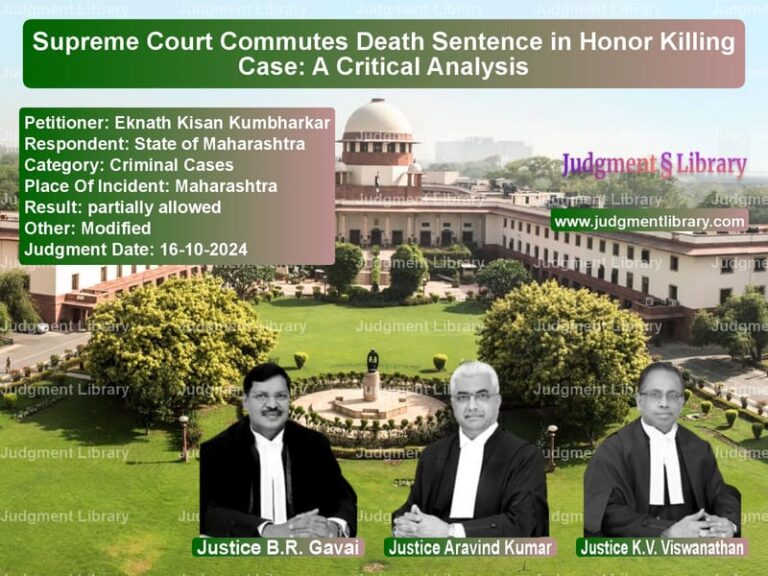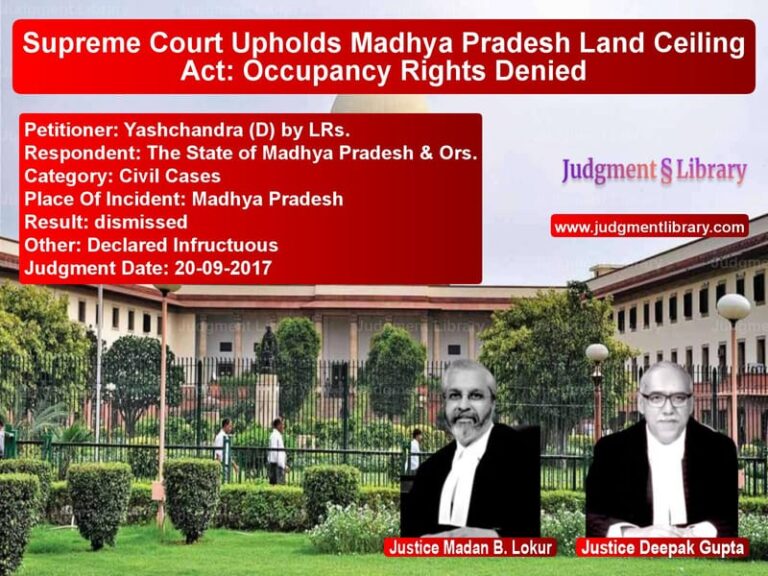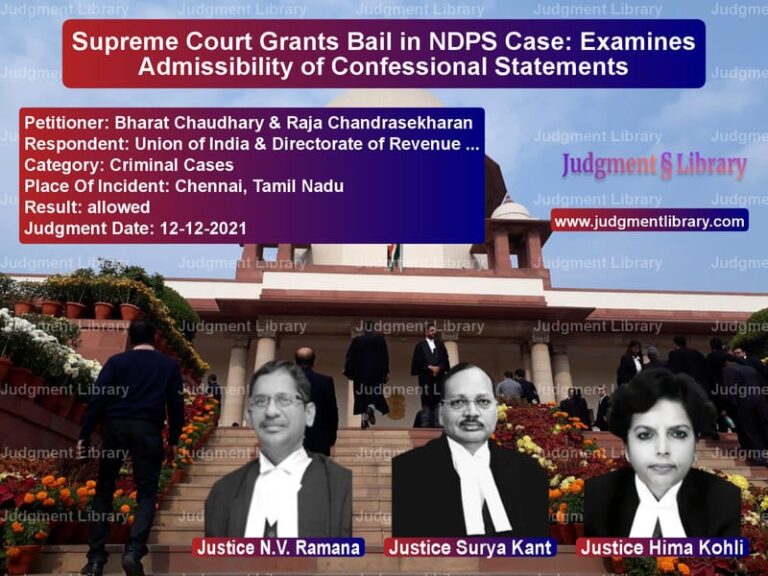Supreme Court Rules Senior Manager Not a Workman Under Industrial Disputes Act
The case of M/S Bharti Airtel Limited vs. A.S. Raghavendra revolves around a long-standing employment dispute where the respondent alleged wrongful termination and sought reinstatement under the Industrial Disputes Act, 1947. The Supreme Court was tasked with determining whether the respondent fell within the legal definition of a “workman,” which would allow him to claim relief under the Act.
Background of the Case
The respondent, A.S. Raghavendra, was appointed as Regional Business Head (South) – Government Enterprise Services at Bharti Airtel Limited on June 22, 2009. His compensation package included:
- A fixed salary of Rs.13,20,000 per annum.
- A variable component under the Sales Incentive Plan (SIP) of Rs.8,80,000 per annum.
- Perks such as car hiring charges, petrol allowances, driver salary, professional body memberships, and credit card reimbursements.
Raghavendra supervised a team of four Account Managers overseeing Karnataka, Tamil Nadu, Andhra Pradesh, and Kerala. His responsibilities included performance evaluations, government liaising, and strategic sales management.
On March 24, 2011, the respondent submitted his resignation, citing dissatisfaction with his job rating and feeling “humiliated and insulted.” The resignation was accepted on May 9, 2011, and a final settlement of Rs.5,92,538 was made.
Nearly 19 months later, Raghavendra filed a dispute before the Deputy Labour Commissioner, Bengaluru, alleging that his resignation was “forced.” The case was referred to the Labour Court, which ruled against him, stating that he was not a “workman” under Section 2(s) of the Industrial Disputes Act.
Legal Proceedings
- The Labour Court (2017) dismissed his claim, ruling that he was in a managerial role and not a workman.
- The Karnataka High Court (Single Judge, 2019) overturned the Labour Court’s decision, stating that since he did not have hiring/firing powers, he was a workman.
- The Karnataka High Court (Division Bench, 2022) upheld the Single Judge’s ruling, leading to the appeal before the Supreme Court.
Arguments by the Appellant (Bharti Airtel Limited)
- The respondent held a managerial position and oversaw employees.
- His compensation and benefits were far above what a workman would receive.
- His responsibilities included performance assessments of subordinates, which indicated a leadership role.
- The Labour Court’s decision was based on factual evidence, and the High Court exceeded its jurisdiction by overturning it.
Arguments by the Respondent (A.S. Raghavendra)
- He had no power to hire, fire, or conduct disciplinary inquiries.
- His role was primarily clerical and administrative, not managerial.
- His resignation was obtained under coercion and should be treated as wrongful termination.
- The High Court correctly ruled in his favor based on precedents.
Supreme Court’s Analysis and Judgment
The Supreme Court found multiple flaws in the High Court’s reasoning:
- Misinterpretation of “Workman” Definition: “The absence of hiring or firing powers does not alone determine whether an employee is a workman. A person supervising employees and earning a high salary cannot be classified as a workman.”
- Nature of Duties: The respondent’s job involved overseeing managers across multiple states and liaising with government officials, which is managerial in nature.
- Salary and Perks: “A person earning Rs.22,00,000 annually with multiple executive benefits is not a workman under any reasonable interpretation.”
- Judicial Overreach: The High Court exceeded its jurisdiction by re-examining facts and disregarding the Labour Court’s detailed assessment.
Based on these findings, the Supreme Court ruled:
“The respondent was clearly in a managerial position and does not fall under the definition of a workman. The High Court’s ruling is unsustainable and must be set aside.”
Supreme Court’s Final Order
- The appeal by Bharti Airtel was allowed.
- The Karnataka High Court’s judgment was quashed.
- The Labour Court’s original decision was restored.
- The respondent’s claim for wrongful termination was dismissed.
Legal Implications of the Judgment
- Clarifies that high-ranking executives do not qualify as “workmen” under labor laws.
- Reinforces the limited scope of judicial review in labor disputes.
- Emphasizes that employee dissatisfaction alone does not equate to coercion.
Conclusion
This ruling sets a precedent for labor law disputes, reaffirming that managerial employees are not covered under the Industrial Disputes Act. It prevents misuse of labor laws by executives seeking benefits meant for lower-tier employees.
Petitioner Name: M/S Bharti Airtel Limited.Respondent Name: A.S. Raghavendra.Judgment By: Justice Hima Kohli, Justice Ahsanuddin Amanullah.Place Of Incident: Bengaluru, Karnataka.Judgment Date: 02-04-2024.
Don’t miss out on the full details! Download the complete judgment in PDF format below and gain valuable insights instantly!
Download Judgment: ms-bharti-airtel-li-vs-a.s.-raghavendra-supreme-court-of-india-judgment-dated-02-04-2024.pdf
Directly Download Judgment: Directly download this Judgment
See all petitions in Employment Disputes
See all petitions in Termination Cases
See all petitions in Judgment by Hima Kohli
See all petitions in Judgment by Ahsanuddin Amanullah
See all petitions in allowed
See all petitions in Quashed
See all petitions in supreme court of India judgments April 2024
See all petitions in 2024 judgments
See all posts in Service Matters Category
See all allowed petitions in Service Matters Category
See all Dismissed petitions in Service Matters Category
See all partially allowed petitions in Service Matters Category

